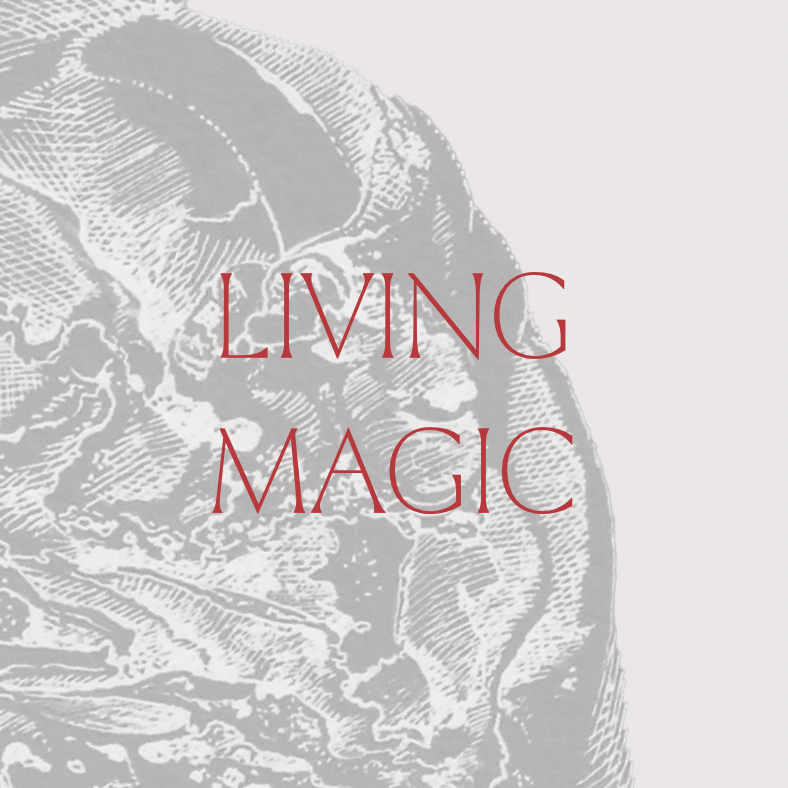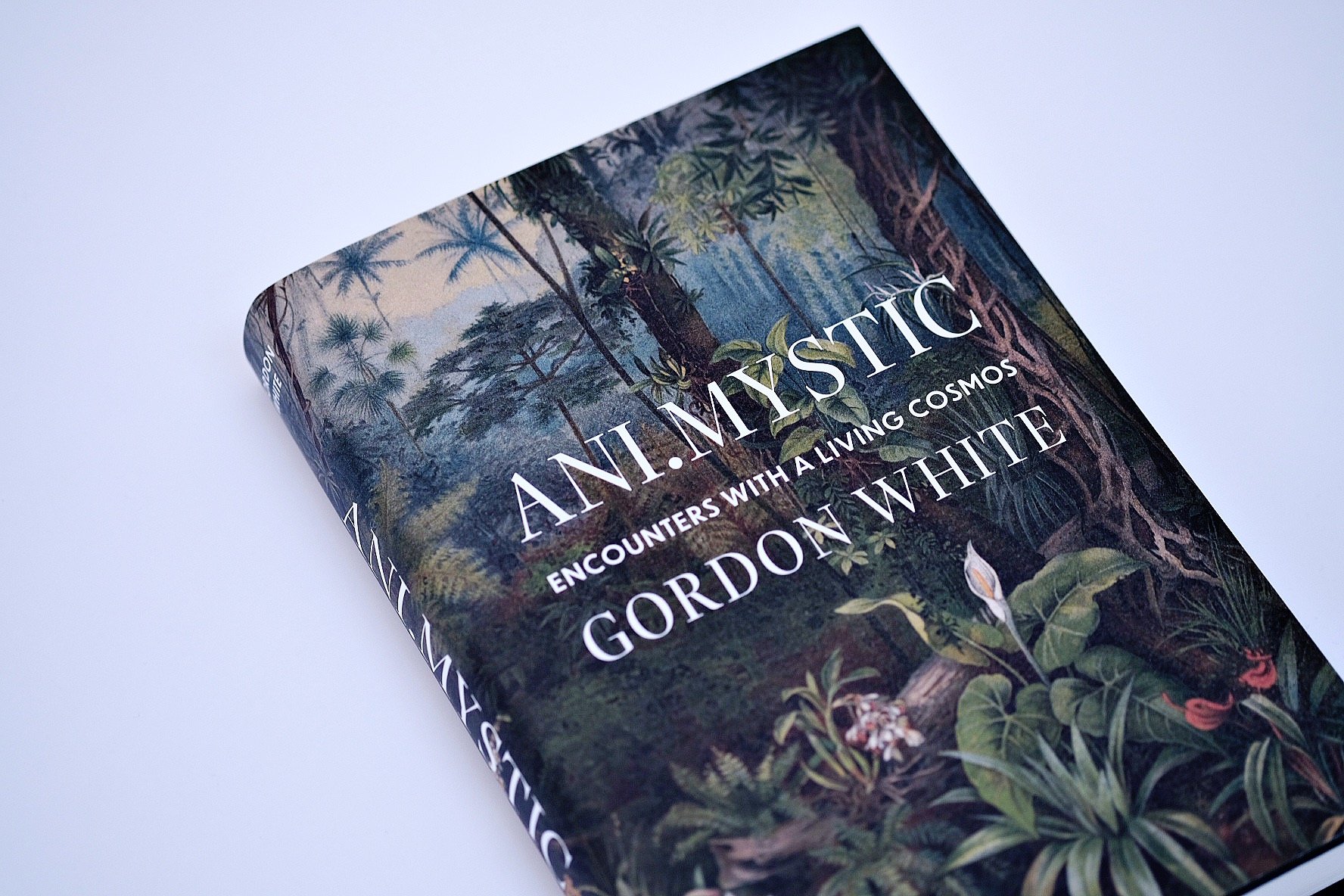
Paralibrum.
An independent home for bibliophile occulture

Scroll to read or search our library of book reviews.
By keyword, author, publisher or year.

‘Effigy: of Graven Image and Holy Idol’ by Martin Duffy
Effigy is at first a rather daunting proposition and one is left wondering how the subject can be expanded into such a thick tome. However, the thoroughness of Duffy’s research and study, his diligent fact-finding and investigation into the historic and contemporary practical use of the idol is superb, revealing how mammoth a subject it actually is – masterfully handled and treated with care and consideration.

‘Nazarth: Pillars of Gladness’ by Alexander Cummins
[…] As Cummins suggests, the calls and figures as a whole might be deployed for various sorcerous reasons. Yet if there is one thing that remains constant with poetry, it is the ardency with which it is performed that makes it so evocative – even spoken softly, gently, soothingly, in tones of intimacy and friendship, there must be enthusiasm.

‘Against the Grain’ by Prema Goet
I recommend the devouring of this book, and a warning of side effects may also seem in order. What we hold in our hands here is immensely valuable from multiple perspectives. From the modern goês’ vantage point, Prema Goet offers us a veritable anti-grimoire. A book that contains no grammar, but pure visual poetry.

‘A Guide to the Zohar’ by Arthur Green
After more than twenty years of study of practical Kabbalah outside authentically Jewish circles, I commend Green's book as both the best written for beginners and a much-needed corrective for most advanced practitioners. May it appear on the bookshelves and curricula of all magical orders far ahead of the works of Adolphe Franck, Mathers, Crowley, or Papus.

‘How to Become a Modern Magus’ by Don Webb
Don Webb’s ‘How to Become a Modern Magus’ poses three interesting questions with its title. What is a Magus, what is magic, and is there a difference between a Magus and a Modern Magus? (…) A book that teaches all that deserves to be read, to be used and to be applauded!

‘Holy Heretics’ by Frater Acher
Frater Acher writes with very deliberate care for the reader. In a sense, this is a book about character, in terms of the symbols we use (and which also use us) to contour our perception and experience. It is also a study in contrasts, in order to explore what the author calls “the rainbow path” – which requires seeing through and behind caricatures. Whether those caricatures are those of the fanatical Christian extremist, the dissolute pagan, or the saintly hesychast, all are examined here with remarkable even-handedness.

‘Living Magic: Contemporary Insights and Experiences from Practicing Magicians’ by Frater U∴D∴ et al.
Living Magic is a most unusual book, and yet it should not be. As its subtitle says, it is a book entirely entrenched in and geared towards magical practice. Specifically, it breathes the kind of magic that does not walk cloaked in centuries of tradition, in garments of cryptic symbols and dead languages, peacock-like strutting out in leather-binding and emblazoned in claims of ancient lineages. Instead Living Magic is epitomising the kind of magic that nakedly stares you in the face and bluntly punches you in the stomach.

‘Hermetic Spirituality and the Historical Imagination’ by Wouter J. Hanegraaff
Hanegraaff's voice is not the only voice present in his text. As an attempt to produce a new narrative, I am not qualified to judge its effectiveness, but perhaps as a spell, I would hazard that it is more successful than not, for it leads to contemplation, and from there, perhaps the logos may lead the reader to that seeming boundary-cum-precipice where the curved-beak smile and tip of the hat may be taken as an opportunity to do the work.

‘Trafficking with Demons’ by Martha Rampton
This is, obviously, a new historical study, as such at points evidential conclusions arise which contradict or update comparatively recent scholarship. Martha Rampton, is a good example of a post-modern historian, explaining her evidence via the then dominant (and divergent) narratives, upon which she passes no anterior judgement. Her book is both definitive and interesting.

‘Staying with the Trouble: Making Kin in the Chthulucene’ by Donna J. Haraway
Haraway invites us, as readers, to spectate-and-speculate with the experiences she records and links together. It is not passive, but a participatory role which invites us to speculate-with-Haraway about our own experience. We are presented with the author’s oddkinnery and perhaps may begin to conceive of ourselves tentacularly; touched, grasped, tasted-with, made and making-with things beyond the boundaries of what we consider human or person in our lives.

‘Ani.Mystic’ by Gordon White
Ani.Mystic is a beautiful and informative work. But to read it is to embark upon a densely woven encounter. The sheer variety of voices that contribute to its fabric do not obfuscate, in any way, its message. Rather, they serve to pitch a distinctly perspectival challenge to the reader, to ingrained habits of thinking and being […]. The quality of its prose and the logic underpinning its argument are, respectively, stylistically well-polished and thoroughgoing; the choice and use of its various interlocutors a treasure chest of sources and ideas.

‘A Demon-Haunted Land’ by Monica Black
[…] Black was able to find “scores of ‘witchcraft trials’” “between roughly 1947 and 1965”, as well as “sources in which people talk of being pursued by devils and hiring exorcists”, “police records describing prayer circles whose members convened to combat demonic infection”, “mass pilgrimages to holy sites in search of spiritual cures and redemption”.

‘Historiola: The Power of Narrative Charms’ by Carl Nordblom
What Nordblom has done is provide us with a framework to discover our own relationship to the magical or sorcerous narrative within our own lives – a kind of praxis which enables us to think about word and image in a way which may be unusual to some moderns. […] we should thank the author for providing us with only a glimpse of the many worlds of the historiolae which may present the enquiring mind with rich alterities.

‘The Cult of the Black Cube’, 2nd Edition, by Arthur Moros
[…] This then, is where the Black Cube shines most darkly; for all that Moros presents us with scholarly analysis, and historic and new rites to encounter the Saturnine Deity in our own lives should we wish closer congress, it is his obvious intimate embrace of, and his deep suffusion in such a Saturnine Gnosis which wells up.

‘The Sworn and Secret Grimoire’ by Jake Stratton-Kent
Jake Stratton-Kent gently but decidedly brushes away the naive hope of offering the reader any sort of definite pathway, absolute truth or sanctified orthopraxy; instead, his book aims to create just about sufficient orientation points – as well as lazy readers’ trapdoors, one should add – so that each one of us can create, correct or continue to ruin their own ritualistic path.

‘Rosicrucian Magic’ by Frater Acher
Rosicrucian Magic raises the question of what kind of balance must be struck in both the practice and the study of esotericism in general. Acher’s answer is in a phenomenological understanding of the Rosicrucian experience, of the initiatic moment, with all its intentionality, temporality, and intersubjectivity, we might well find a sympathetic understanding – the internal connections the modern initiate is attempting to achieve.

‘Stranger in the Mask of a Deer’ by Richard Skelton
Stranger in the Mask of a Deer is, perhaps, the single most impactful sequence of thematically-linked poetry to have been written in the spirit and celebration of a pure and unadulterated paganism that I have encountered; one that combines its sinuous diction with an essential and ageless metaphysics.

‘RUNA - The Wisdom of the Runes’ by A.D. Mercer
Upon closing the book, it is good to know that this book will not remain closed. It is reassuring to know this book has come into the world. Mercer has composed not only an elegant but also a very practical and useful handbook for the entire use and mysteries of the Armanen futhark.

‘Black Easter’ by James Blish
Black Easter is a firework of a short novel, shooting out into the dark sky of black magic. The kind of magic that does not aspire to work in service, and that values the short, sharp, spicy taste of exoticism over the genuine discovery of what lies beyond ourselves. Depending on how we like to approach this small book, it can either make for an entertaining read of noir-fantasy or, alternatively, for a thought-provoking parable on modern-day magic.

‘Clavis Goêtica’ by Frater Acher & José Gabriel Alegría Sabogal
Frater Acher and José Gabriel Alegría Sabogal present us with […] a guide and a glossary diffracted through the prism of personal ritual practice, historical research, and painstakingly intimate relationships with spirits.



